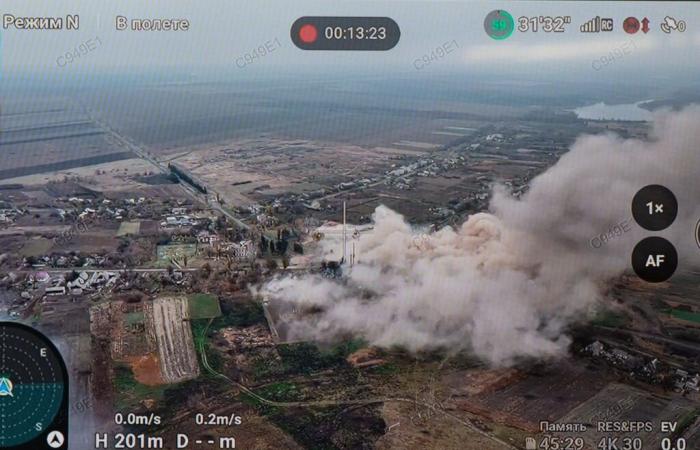DThese major turning points on the world stage have just given a tremendous boost to the Ukrainian crisis: the irruption, in October, of North Korean troops in Russia to lend a hand to Vladimir Putin’s army and the election, on November 5, of Donald Trump to the White House.
Read also | Article reserved for our subscribers War in Ukraine: Western embarrassment over North Korean involvement
Read later
These two events have moved the lines in a conflict which has caused, in a thousand days, hundreds of thousands of deaths, which undermines the security of Europe and increasingly directly involves multiple powers, notably nuclear ones. The first event, the arrival of at least 10,000 soldiers from North Korea in Russia, in addition to the delivery of large volumes of arms from this country, marked a true internationalization of the conflict: for the first time since the Mongol invasions, an East Asian country intervenes in a European theater of war, reversing the historical trend of Western interventions in Asia.
This upheaval, described as « rupture » by President Emmanuel Macron, pushed President Joe Biden to authorize Ukraine to strike targets on Russian territory with American long-range ATACMS missiles, which kyiv did on Tuesday, November 19. Too late, the decision will not change the course of the war, but it further commits the United States and, probably, in their wake, the United Kingdom and France, who delivered missiles with similar functions to kyiv.
Read also | Article reserved for our subscribers Why the US decision to allow Ukraine to use ATACMS missiles in Russia should not change the balance of power
Read later
The second event changes the diplomatic situation, because the settlement of the Ukrainian conflict is a campaign promise of Donald Trump, who will be in power in two months. Unlike other Europeans, Volodymyr Zelensky, the Ukrainian president, anticipated this return. He even wished for it in certain respects, as the hesitations of the Biden administration have cost the Ukrainian forces. The combination of these two events opens a period that is both dangerous, because each party will seek to strengthen its position with a view to a possible outcome, but also brings a new dynamic.
Possible leverage in a negotiation
A sentence in the congratulatory message sent by Zelensky to Trump on November 6 is worth noting: the Ukrainian president says he appreciates the American president-elect’s approach to “peace through strength”. This concept, dear to Emperor Hadrian, is developed by Robert O’Brien, who was Trump’s national security advisor from 2019 to 2021, in an article published in June by the journal Foreign Affairs. The former Trump adviser criticizes the Biden administration for having, while providing significant military aid to Ukraine, “dragged its feet on sending kyiv the type of weapons needed to succeed”. Trump, he predicts, would want a negotiated settlement to the war to “end the massacre while preserving Ukraine’s security” ; this would involve “continue to provide lethal aid to Ukraine, financed by the Europeans, while keeping the door open to diplomacy”with a “certain degree of unpredictability” to destabilize Moscow.
You have 48.97% of this article left to read. The rest is reserved for subscribers.






